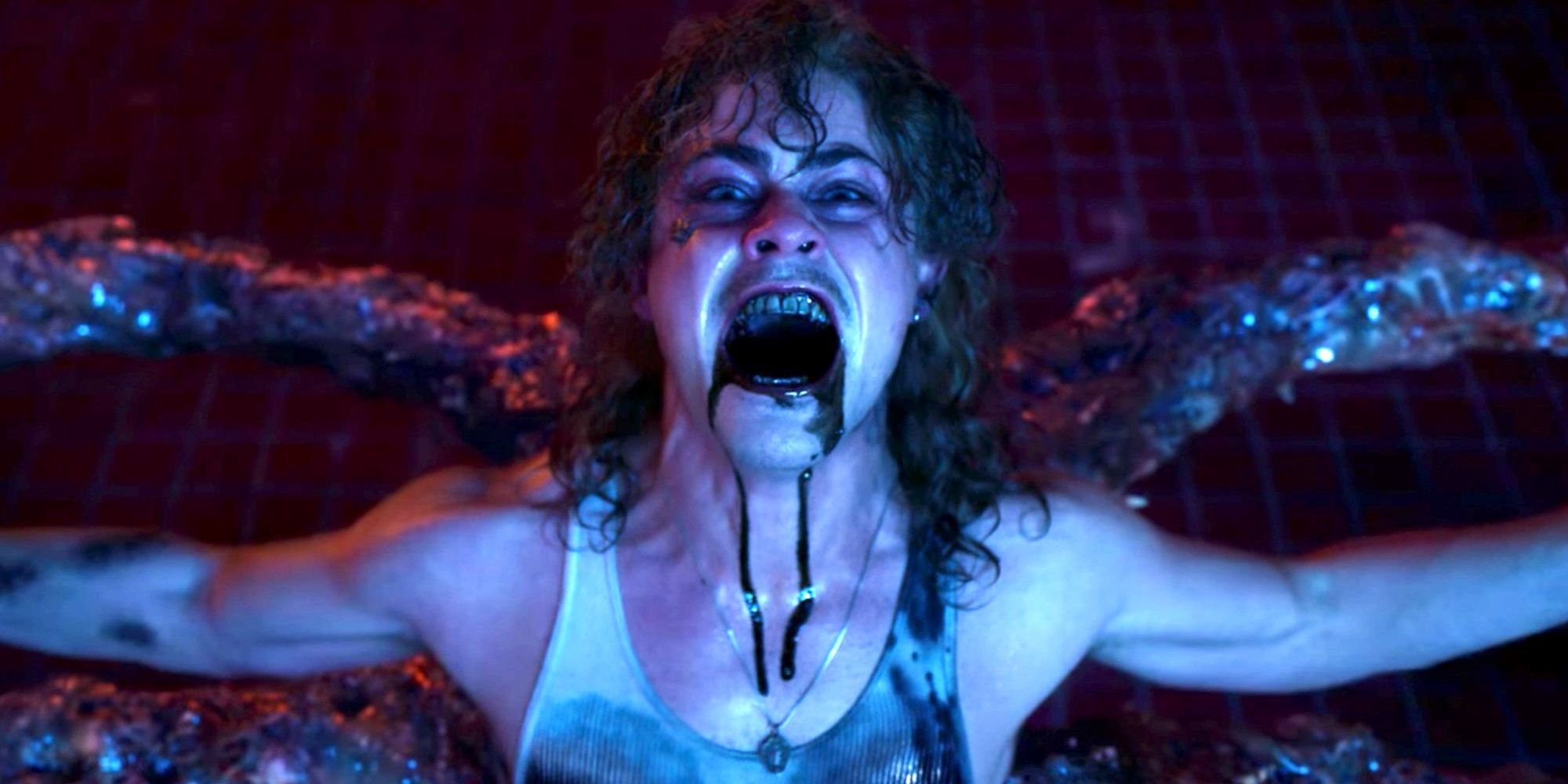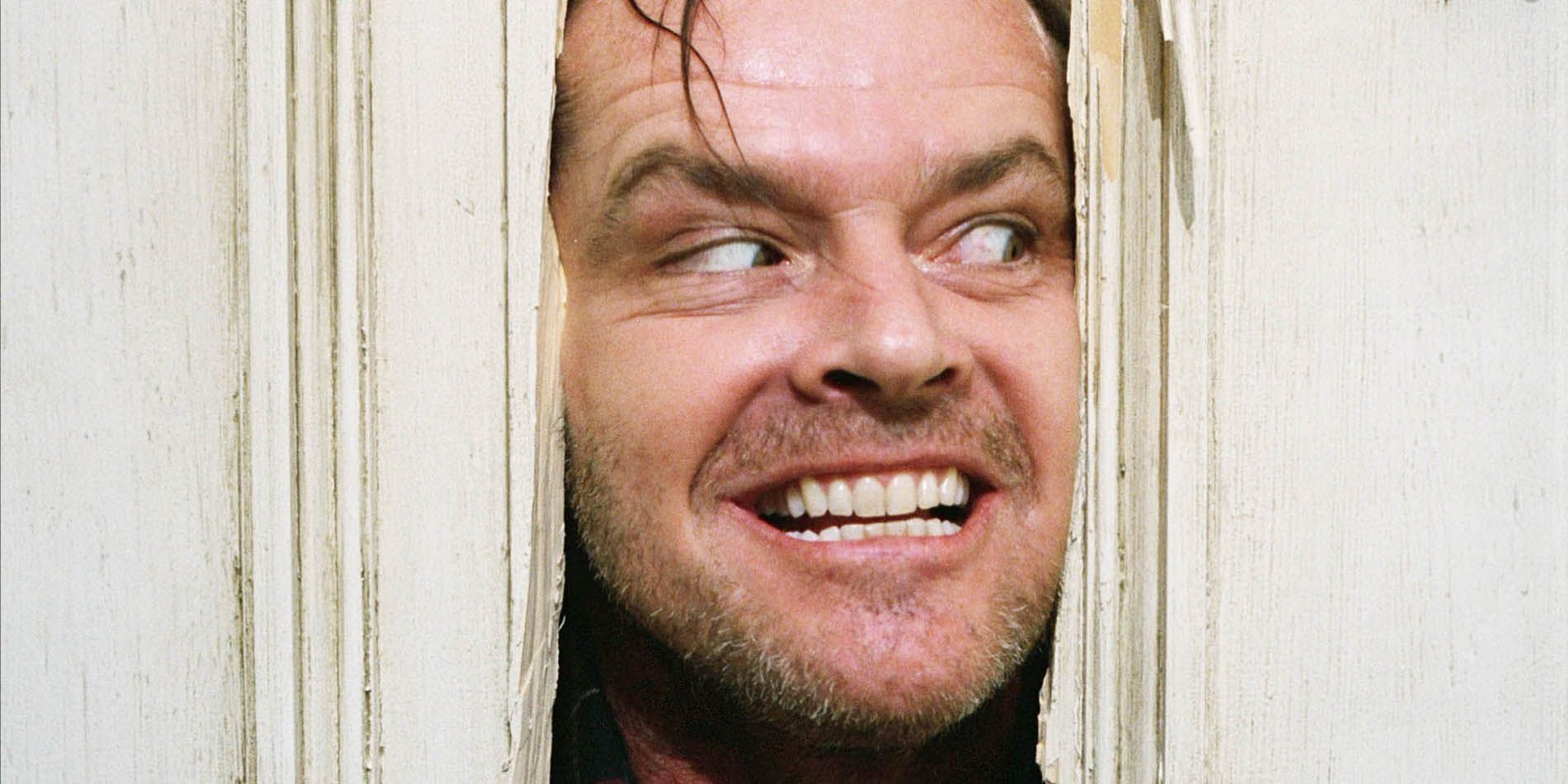Stranger Things has snuck plenty of 80s references into its 3 seasons, but many fans missed the show’s subtle nod to Stephen King’s classic horror story The Shining. Stranger Things is part horror, part sci-fi, part coming-of-age drama, and all irresistible nostalgia trip fun, and so it's no surprise the Netflix show has been a huge hit for the streaming service since it debuted in mid-2016.
Although Stranger Things’ three seasons have had their faults and flaws, the show’s story of a group of mismatched kids and the odd supernatural goings-on in their small hometown of Hawkins, Indiana has nonetheless won a huge audience. The broad appeal of Stranger Things is due in large part not only to its genre elements but also its stellar, multigenerational cast, including season 3 standout Dacre Montgomery.
Initially introduced in season 2, Montgomery’s villainous Billy becomes a major figure in Stranger Things’ season 3 wherein he is the show’s primary antagonist. The IT-influenced Billy owes a clear debt to Stephen King, but a lot of fans missed Stranger Things’ subtle acknowledgment of this debt. In the climax of season 3, Billy strands the heroes in the mall by removing a few key components from the ignition of their car, which is exactly how the crazed Jack Torrance keeps Wendy and Danny in the Overlook at the close of the classic 80s horror. It’s a clever nod that not everyone would notice, but no King super-fan could miss.
It’s no coincidence that Stranger Things made an explicit link between Montgomery’s character and the Stephen King novel's acclaimed Kubrick movie adaptation, as the actor told ScreenRant he based his character on The Shining’s Jack Torrance. There are obvious echoes of Nicholson’s unhinged patriarch in Montgomery’s chilling performance, although interestingly Stranger Things takes a more sympathetic approach to the character than Kubrick’s chilly, bleak movie adaptation. King was famously furious with the Kubrick movie’s decision to make Jack less empathetic, as the author himself originally envisioned the character as a tragic victim of hubris and inherited alcoholism. It’s a theme expanded on in the sequel novel Dr. Sleep, and one that isn’t ignored in Stranger Things.
Like King, Stranger Things opts to depict the deeply flawed Billy not as a malicious monster, but as a mistreated character who is under the influence of forces he can’t control. He’s quite literally being puppeteer by the Mind Flayer, but even outside of this body-snatching horror Billy is tortured by a poignant childhood that makes him less of a monster and more of a misunderstood victim. Billy's eventual self-sacrifice performs gives the character redemption that Kubrick’s movie denied Nicholson’s Jack, which makes Stranger Things’ decision to compare the pair even more interesting. When both characters are compared, it’s obvious that the Netflix show takes a more empathetic approach to its characters than the horror of Kubrick's icy, blackly comic adaptation, and its Jack Torrance tribute skews closer to the original novel’s version of the character.


